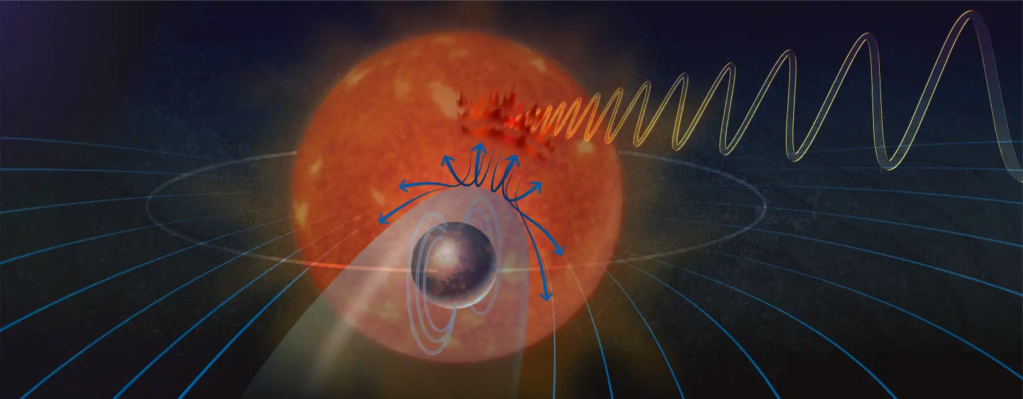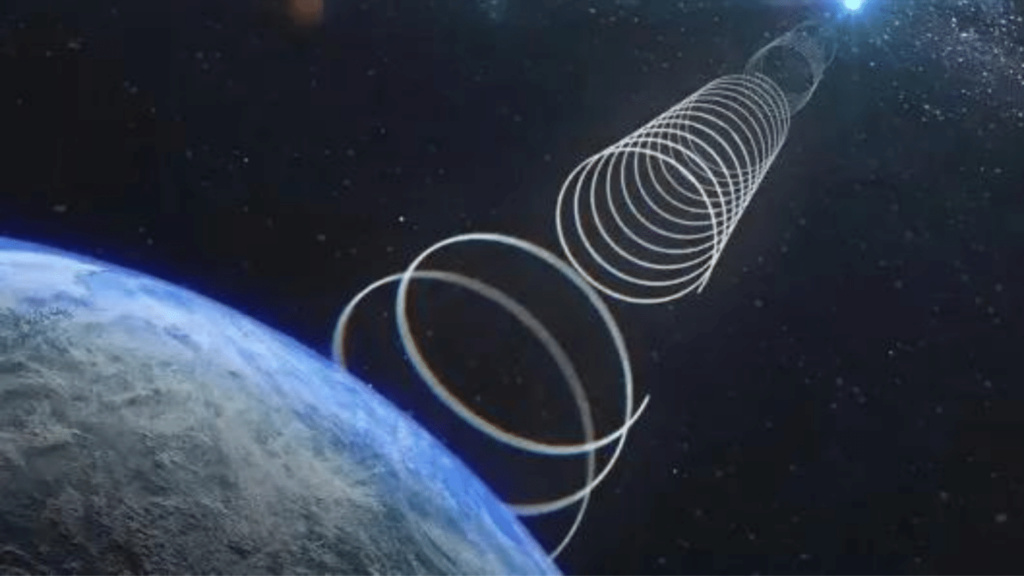A 'coherent' radio signal gives hope for life beyond our planet

On planet Earth, the magnetic field helps protect us from high-energy particles and plasma from the sun (NASA)
New results indicate the possibility of magnetic fields in a planet located outside the solar system, which makes it likely that it is habitable.
A "coherent" radio signal has been detected coming from a planet outside our solar system, which indicates that it may be habitable.

The indication is that the planet has its own magnetic field, a factor that is believed to be essential to sustaining life within any given world.
On Earth, the magnetic field helps protect us from high-energy particles and plasma from the sun. By analogy, life on any other planet would likely depend on a similar domain to protect it.
But until now, researchers have had difficulty confirming whether distant, rocky planets have magnetic fields of their own, so they haven't been able to say how likely a planet is to support life.

Now we have a new candidate, YZ Ceti b, a rocky planet orbiting a star about 12 light-years [113.5 trillion km] from Earth, which is sending a repeating radio signal from the star and appears to be affected by the planet.
It also appears that the radio waves detected by the researchers coming from the planet are generated when the star interacts with the magnetic field of the planets orbiting it. Given the close proximity of the two, they are the ideal model for testing theories about whether observing these magnetic fields is possible from such a distance.
Researchers liken the effect to the aurora borealis, or northern lights, which occur on Earth when high-energy particles from the sun interact with our planet's atmosphere.

Sebastian Pineda, an astrophysicist at the University of Colorado and one of the researchers who saw the signal stated: "Actually we see auroras on the star - this is what this radio emission looks like... There should be auroras on the planet too if it has an atmosphere of its own." .
Joe Bechet, program director for the National Radio Astronomy Observatory in the United States, said: "The search for potentially habitable worlds or life in other solar systems depends in part on being able to determine whether rocky Earth-like planets outside the solar system do indeed contain Magnetic fields... Not only does the research show that this particular rocky exoplanet likely has a magnetic field, but it offers a promising way to find more."
The findings are presented in a new paper, Coherent Radio Bursts from Planetary Host Star YZ Ceti, published in Nature Astronomy.
Source: websites

